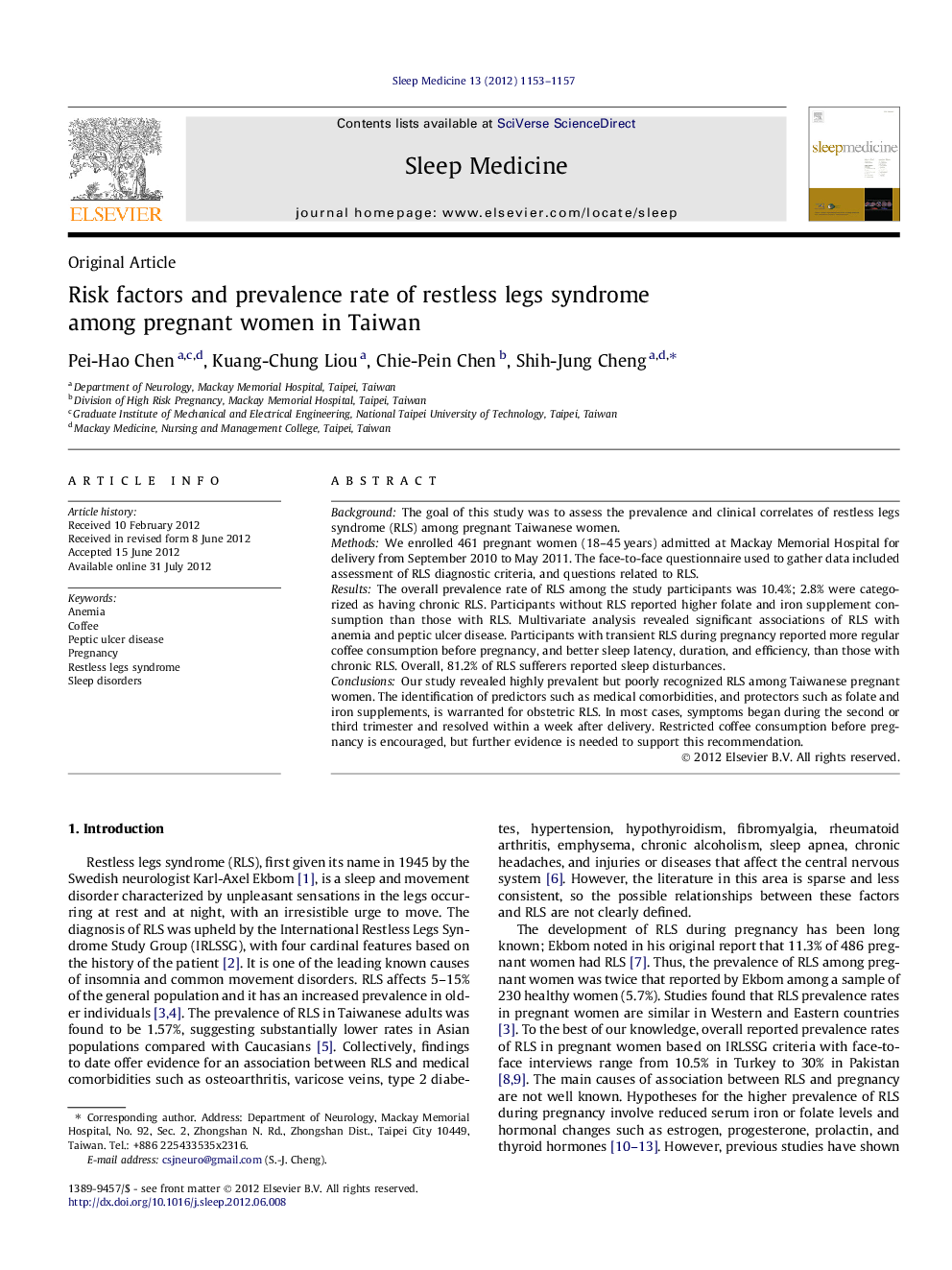| Article ID | Journal | Published Year | Pages | File Type |
|---|---|---|---|---|
| 6061097 | Sleep Medicine | 2012 | 5 Pages |
BackgroundThe goal of this study was to assess the prevalence and clinical correlates of restless legs syndrome (RLS) among pregnant Taiwanese women.MethodsWe enrolled 461 pregnant women (18-45Â years) admitted at Mackay Memorial Hospital for delivery from September 2010 to May 2011. The face-to-face questionnaire used to gather data included assessment of RLS diagnostic criteria, and questions related to RLS.ResultsThe overall prevalence rate of RLS among the study participants was 10.4%; 2.8% were categorized as having chronic RLS. Participants without RLS reported higher folate and iron supplement consumption than those with RLS. Multivariate analysis revealed significant associations of RLS with anemia and peptic ulcer disease. Participants with transient RLS during pregnancy reported more regular coffee consumption before pregnancy, and better sleep latency, duration, and efficiency, than those with chronic RLS. Overall, 81.2% of RLS sufferers reported sleep disturbances.ConclusionsOur study revealed highly prevalent but poorly recognized RLS among Taiwanese pregnant women. The identification of predictors such as medical comorbidities, and protectors such as folate and iron supplements, is warranted for obstetric RLS. In most cases, symptoms began during the second or third trimester and resolved within a week after delivery. Restricted coffee consumption before pregnancy is encouraged, but further evidence is needed to support this recommendation.
